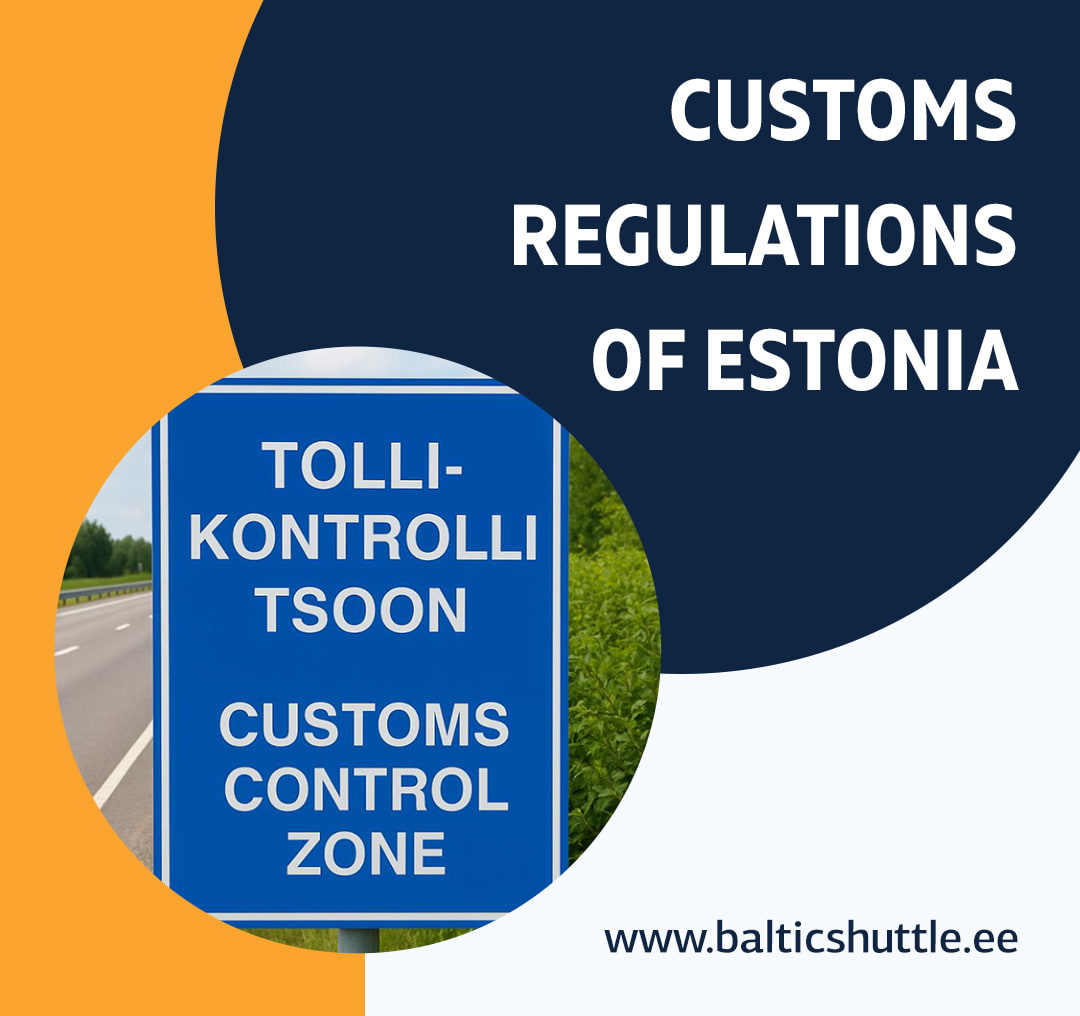Customs rules & regulations when entering Russia from Estonia
Updated: January 2026
Sanctions on the export of goods from the European Union to Russia
The following goods are prohibited for import to Russia from EU countries:
- Luxury goods worth more than €300 per item
- Consumer electronics worth more than €750 per item
- Audio and video equipment worth over €1000 per item
- Musical instruments valued at more than €1,500 per item
- Motorbikes and parts of motorbikes valued over €5000
- Motor vehicles valued over €50,000
According to the EU Council Regulation 2022/428 dated 03/15/2022, it is forbidden to sell, supply, transfer or export, directly or indirectly, luxury objects listed in Appendix XVIII, any individual or legal entity, organization or body in Russia or for use in Russia.
The ban applies to luxury objects listed in Appendix XVIII, to the extent that their cost exceeds 300 euros per unit, unless otherwise indicated in the appendix.
The restrictions do not apply to personal items, such as a smartphone, a handbag, outerwear, etc. According to the experience of our passengers, a personal smartphone and a laptop do not cause customs questions, and external hard drives can be prohibited for transportation. For the transport of new things, we recommend that you have checks to prove that their cost does not exceed the value set by sanctions.
Customs officers are evaluated by the personal belongings of passengers, taking into account the number of things, the duration of the trip, the state of the goods. The final decision that the goods are intended only for personal use is made by a customs officer who checks the purpose of crossing the border and the characteristics of the goods.
⚠️ In addition to luxury items worth more than €300, in 2024, many groups of goods prohibited for transportation to Russia fell under the sanctions of the European Union. They are listed in the Regulation of the EU Council 2024/1745 on the EUR-Lex website.
Please note that such groups of goods as recording media and data medium (including external hard drives, vinyl records, DVD), headphones, microphones, cameras are prohibited for export from EU to Russia.
A list of goods that are prohibited to import into Russia regardless of the cost: living plants, wood, plywood, paper, cardboard, fabrics, varnishes and paints, chemicals, building materials, etc. - read a complete list in Appendix XXIII.
If you have any doubts about the possibility of carrying a particular product, please contact the Estonian Tax and Customs Board by e-mail tollinfo@emta.ee.
Please note: from 1 April 2024, the duty-free limit for importing goods into Russia by land has been reduced to €500 and the weight to 25 kg. If the limit is exceeded, a duty of 30% of the value of the goods must be paid, but not less than €4 per 1 kg (if the value of the goods is less than €500 and the weight is more than 25 kg).
Bringing cash into Russia
Bringing cash into Russia is allowed in any amount. The amount of cash over the equivalent of 10000 USD must be declared. Bank accounts and bank cards do not need to be declared and the amount of cash on them is not checked.
From 14.05.2025, a complete ban on the export of all EU currencies (euros, zloty, kroons, forints, levs, lei) to Russia has been introduced at all border crossings between Estonia and Russia.
The ban does not apply to other currencies, such as US dollars.
Excess cash can be exchanged at exchange points near the checkpoints in Narva for roubles or US dollars. Addresses of exchange offices in Narva near border checkpoint: Malmi St. 2 (open 24 hours), Malmi St. 6 (9:00 — 18:00), Tuleviku 6A (8:00 — 17:00, Sunday till 15:00).
Import of alcohol
Duty-free import of alcohol up to three liters is allowed for each passenger over 18 years of age. The duty for more than three litres is €10 for each litre over the limit. Alcohol over 5 litres is prohibited.
Import of tobacco products
Up to 200 cigarettes or 50 cigars or 250 g of tobacco or 250 g of e-cigarette liquid or 200 sticks may be imported without declaration. It is possible to bring in various combinations with a total weight not exceeding 250 g.
Import of products
Import of products weighing up to 5kg in a package is allowed without declaration. It is prohibited to import products of animal origin without factory packaging or in opened packaging, as well as seeds and potatoes.
NB: According to information from Russian Service for Veterinary and Phytosanitary Supervision, at present (January 2026), the import of meat and dairy products from Estonia to Russia in factory packaging and ready to eat, weighing up to 5 kg per person, is permitted, with the exception of any products containing pork, as well as dairy products produced in Hungary, Slovenia and the Netherlands.
Import of medicines
Import of medicines for personal use that do not contain narcotic or psychotropic substances is allowed without declaration. Import of prescription medicines requires a prescription or a doctor's note on the prescription of the medicine, indicating the amount of the medicine to be taken. Preparations containing psychotropic, narcotic and potent substances must be declared duty-free.
